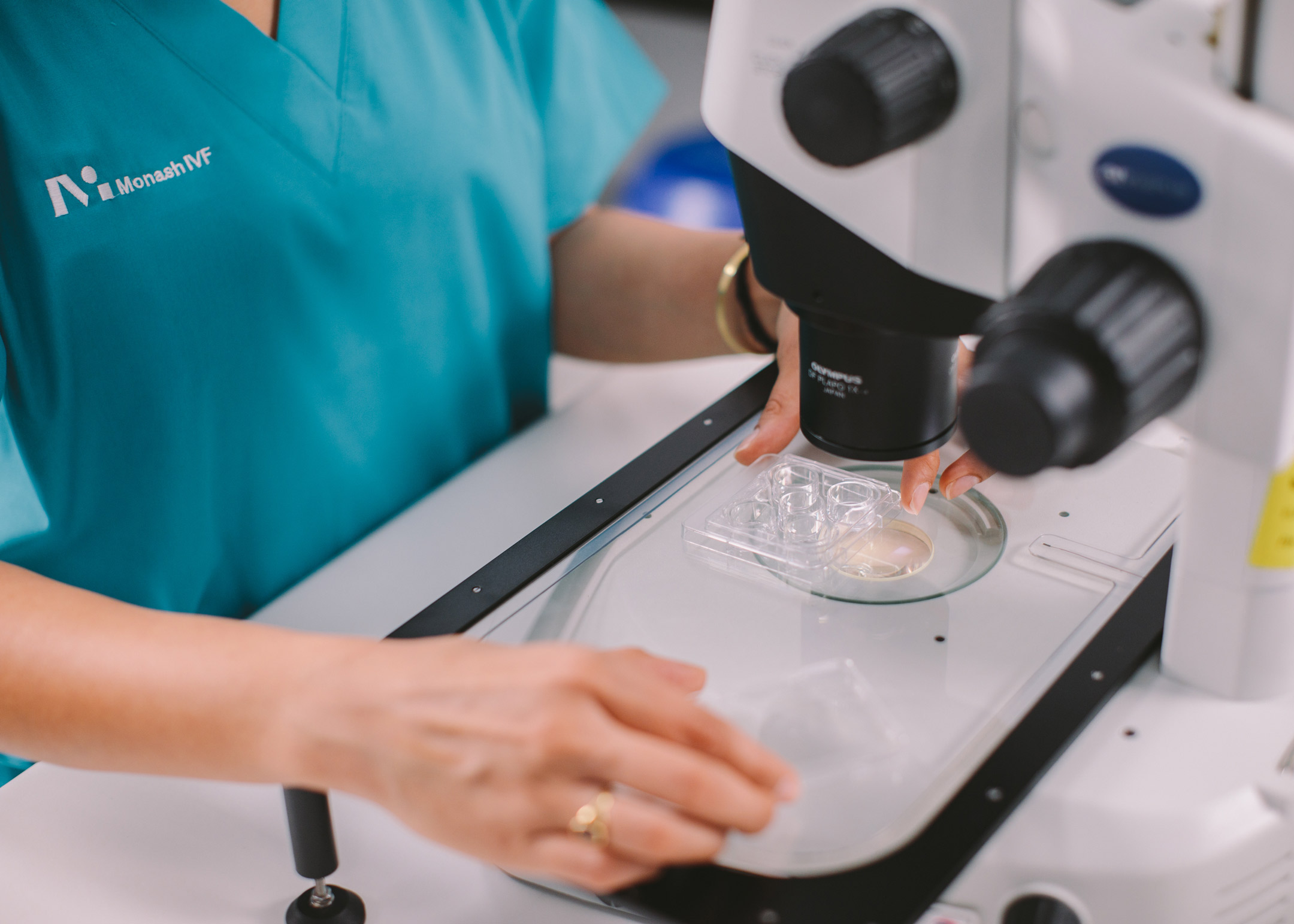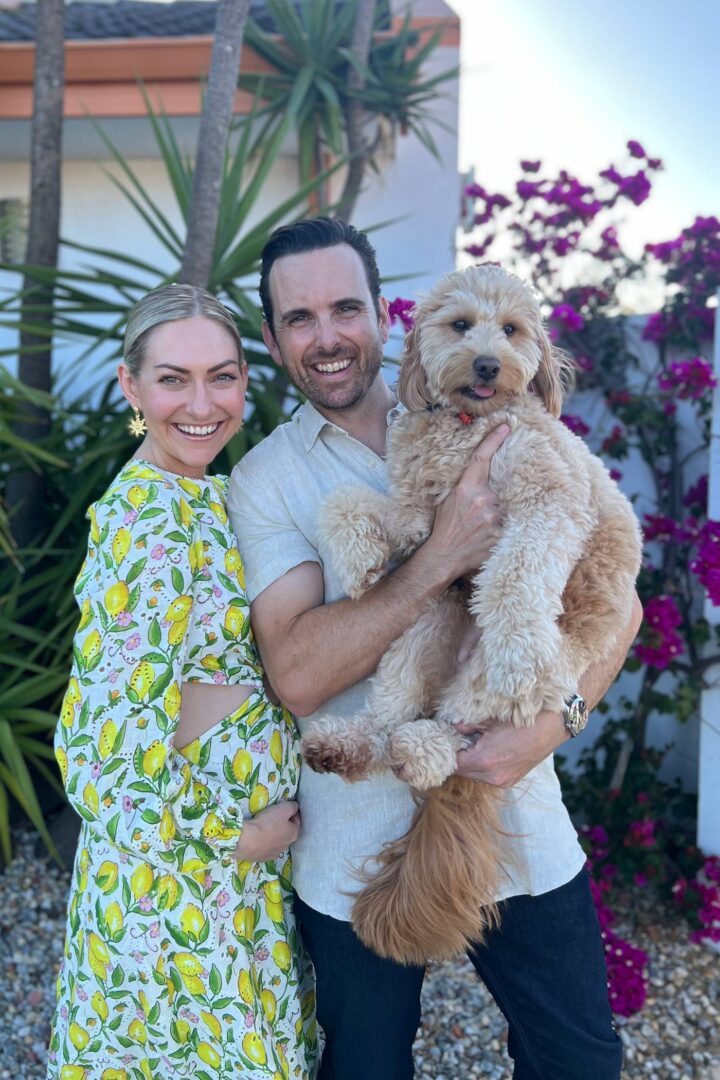
15 Feb IVF: what you need do if you want to have a baby in 2024.
Fertility investigations can make the path to parenthood smoother for those struggling to fall pregnant, but knowing where to start can be daunting, reports Dr Tamara Hunter
Dr Tamara Hunter explains what you need to do if you want to have a baby in 2024.
Of all the roles my patient Ellie Swift wanted in life – CEO, business coach, wife and bestie – there was one that took a bit longer than she planned.
Ellie has always wanted to be a mum, but falling pregnant wasn’t easy for her and her husband, Chay. And they’re not alone – one in six Australian couples have trouble conceiving.
 As a women’s health and fertility specialist, one of the first things I look at when patients come to me after trying unsuccessfully to get pregnant on their own is their general health. If they smoke, I will tell them to quit. If they drink, I will suggest they cut back. If they’re not exercising regularly or eating a well-balanced diet, I will recommend they start doing both as soon as possible.
As a women’s health and fertility specialist, one of the first things I look at when patients come to me after trying unsuccessfully to get pregnant on their own is their general health. If they smoke, I will tell them to quit. If they drink, I will suggest they cut back. If they’re not exercising regularly or eating a well-balanced diet, I will recommend they start doing both as soon as possible.
While lifestyle changes alone are not a magic bullet, being as healthy as possible is a great starting point when you’re trying to conceive. Research has also shown the health of parents at the time of conception can also affect the future health of their children.
In Ellie and Chay’s case, they were already leading a healthy lifestyle and were relatively young. The next step was to take a deeper look at their fertility health and their genetics to investigate what was preventing them from having a baby and come up with a tailored treatment plan.
Conducting a detailed fertility investigation was how I was able to diagnose Ellie with polycystic ovarian syndrome and eventually help her fall pregnant.
After more than two years of trying to conceive, Ellie and Chay are looking forward to the birth of their first child – a baby girl – later this year.
When to seek help
It’s important to take steps to understand your reproductive health, but when should you seek help?
If both partners are healthy, under 35 and have no known fertility issues, there is approximately a 20 per cent chance of conception every month.
The chances of success increase the longer they try to conceive, but having sex every day won’t make a difference. The volume of sperm available for fertilisation can decrease with frequent ejaculation. It’s best to give the sperm a day or two to replenish and try to conceive around every second day in your fertile window.
As the maternal age increases, the chances of success decline. This is why we suggest trying for 12 months if you’re under 35 or 6 months if you’re over 35 before seeking help from a fertility specialist.
However, your chances of success depend on your unique medical circumstances, so in some cases, you might need to seek help sooner.
Understanding Your Reproductive Health
Fertility investigations should involve all parties, and a holistic approach should be taken to ensure nothing is missed.
Fertility investigations can include:
- Medical history – past and current illnesses, such as cancer and autoimmune diseases, can affect your chances of conceiving.
- Fertility history – your menstrual cycle, sexually transmitted disease, past pregnancies and miscarriages, and symptoms that point to endometriosis, PCOS and other gynecological issues should be investigated.
- Family history – fertility problems can run in the family and need to be considered, along with any other relevant conditions.
- AMH test – this blood test is not a measure of fertility, but it can estimate egg reserve. It also does not measure the quality of eggs, but a low AMH is a red flag.
- Pelvic ultrasound – a scan is used to look for abnormalities, such as fibroids and ovarian cysts, that may be getting in the way of conception.
- Semen analysis – examining a sperm sample allows us to look at sperm count, shape and movement and identify any potential issues.
- Genetic carrier screening – Medicare partly covers pre-conception genetic carrier screening that assesses an individual or couple’s risk of passing on serious conditions to their future children. Pre-implantation genetic testing (PGT) can be used where there is a greater risk of selecting chromosomally healthy embryos for implantation.
Step-by-step
- Get a referral from your GP to see a fertility specialist
- At your first consultation, go through your history and arrange initial testing
- Undertake further testing, if needed
- Agree on a treatment plan
By undertaking detailed preconception health checks, potential fertility issues can be found and managed earlier and make your fertility journey easier in the long run.
Dr Tamara Hunter is a Monash IVF WA Medical Director
About Monash IVF Group
Monash IVF has been providing leading reproductive care for 50+ years. Our team includes experienced fertility specialists, genetic counsellors, scientists, obstetricians, gynaecologists, ultrasound technicians, donor and surrogacy experts and nursing teams, all of whom are passionate about supporting people throughout their entire fertility journey. We offer holistic, integrated care from pre-conception health assessments to genetic testing and counselling through to fertility treatment options and even ultrasound services. We’re with you every step of the way. Learn more about us and the services we provide at monashivf.com




